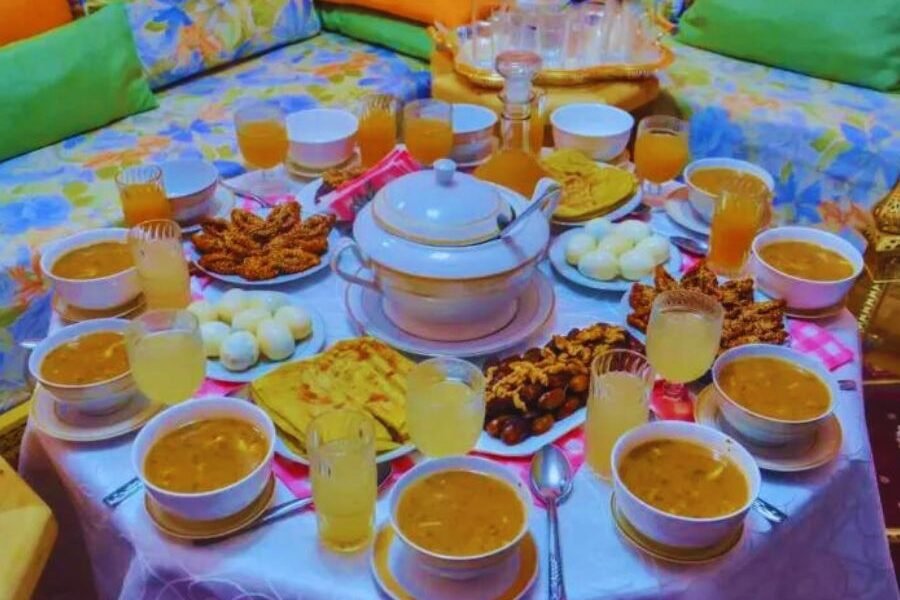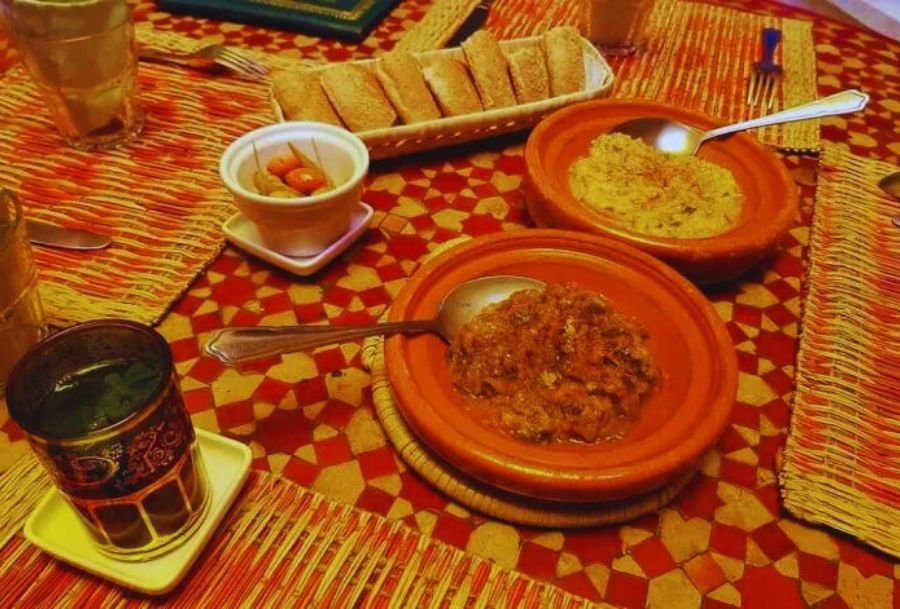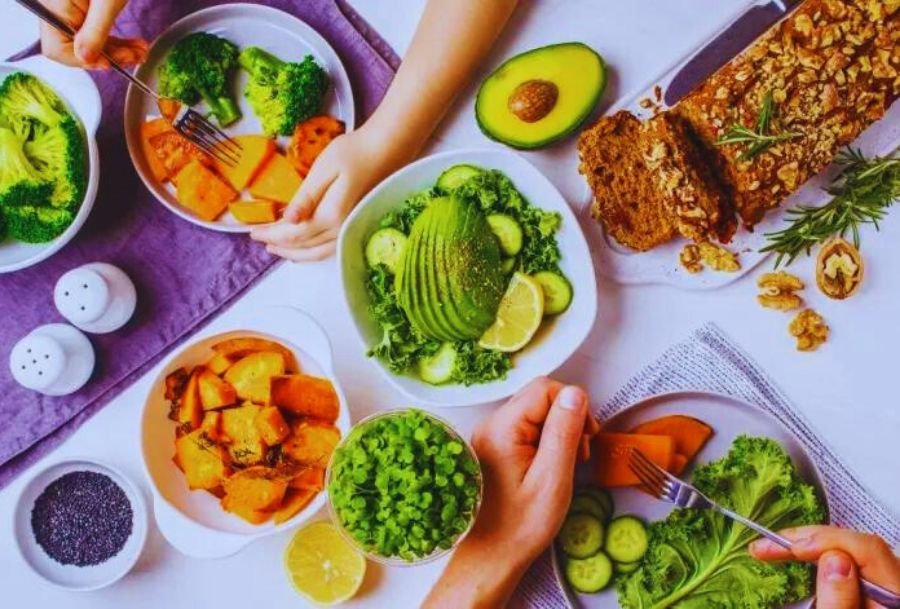Craving a taste of Morocco this Ramadan? Dive into our blog to unravel the magic behind the iconic Moroccan soup Harira! It’s the heartbeat of Moroccan Iftars, and we’re spilling all the deets on how to whip up this silky goodness at home. From secret ingredients to street food stories, we’ve got your culinary adventure covered. So, grab your apron, spice up your kitchen, and let’s turn cooking into a joyous Ramadan celebration! Who’s in for a flavorful journey?
Table of Contents
Learn to Make Moroccan Soup ‘Harira’ for Ramadan?
For Moroccans, you can’t spell Ramadan without Harira. The tomato-based soup is a staple in Iftar, the first meal Muslims have after breaking the fast. Harira is often paired with dates or other traditional food including Chabakia.
It is said that Harira derives its name from the Arab word for silk about the fact that the texture of the soup is equally silky.
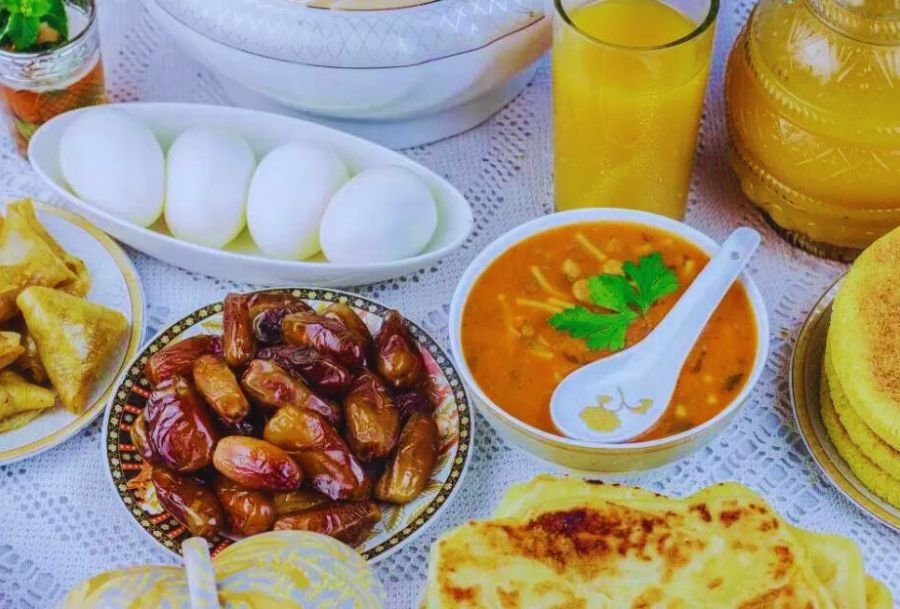
The Moroccan soup comes in different variations that cater to the tastes of vegans as well. The traditional soup can be found in restaurants across the country. You can even find it offered as street food. The exact recipe for Harira can vary dramatically from one family to another.
Here is one version you can try at home if you are looking to get a taste of the Moroccan signature soup but if you plan to travel to Morocco in Ramadan, then you can only expect a cultural lifetime experience.
Ingredients:
- 100 grams of lamb, beef, or chicken, diced (optional)
- 3 tablespoons of vegetable or olive oil
- Soup bones (optional)
- 6 large ripe tomatoes
- 1 cup of dry chickpeas, soaked overnight and peeled
- 2 cups of dry green or brown lentils, rinsed
- 1 large onion, grated
- 1 stalk celery (with leaves), chopped finely
- 1 small bunch flat-leaf parsley, finely chopped
- 1 small bunch cilantro, finely chopped
- 1 tablespoon of smen (Moroccan fermented butter) or regular butter (optional)
- 1 tablespoon of salt (adjust to taste)
- 1 tablespoon of ground ginger
- 1.5 tablespoons of freshly ground black pepper
- 1 tablespoon of ground cinnamon (optional)
- 0.5 tablespoon of ground turmeric
- 3 tablespoons of tomato paste
- 3 tablespoons of uncooked rice
- 150 grams of all-purpose flour, combined with 2 cups of water to make a smooth paste
- Lemon wedges and additional cilantro for garnish (optional)
Instructions:
Step 1: Preparation
Soak the chickpeas overnight. Peel them by pressing between your fingers. Rinse lentils thoroughly and check for any debris.
Blanch tomatoes in boiling water for 1-2 minutes, then transfer to an ice bath. Peel off the skins, remove seeds, and blend into a smooth puree. Grate the onion.
Wash and chop celery finely. Remove any large stems from parsley and cilantro, then finely chop both.
Step 2: Cooking
In a large pressure cooker or pot, heat oil over medium heat. If using, brown the diced meat until it develops a rich color. Add soup bones for additional flavor if desired.
To the pot, add chickpeas, tomato puree, grated onion, celery, parsley, cilantro, smen (if using), salt, ginger, black pepper, cinnamon, and turmeric. Stir well to combine.
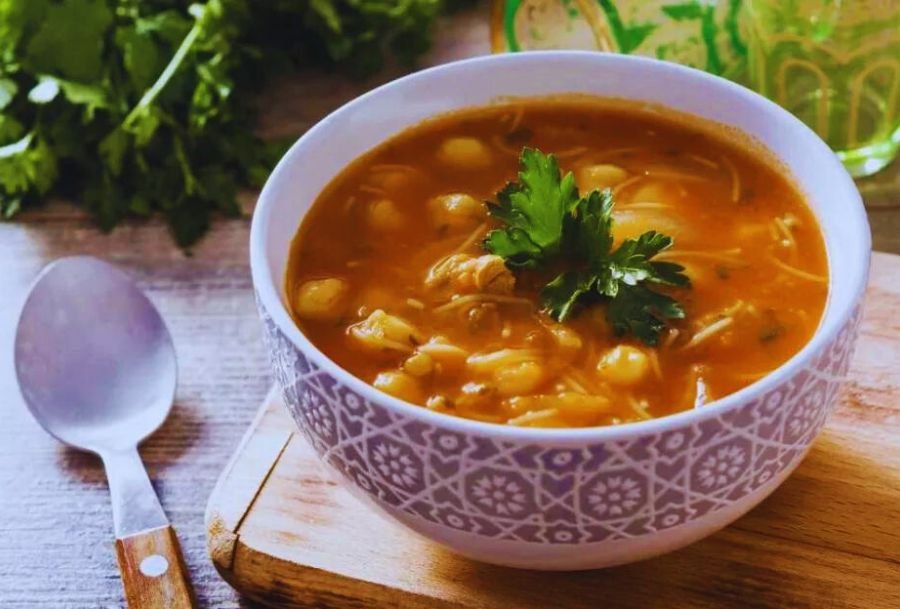
Pour in 3 cups of water. If using a pressure cooker, seal and cook on medium pressure for 25 minutes. If using a regular pot, cover and simmer for about 1 hour until chickpeas are tender.
After the initial cooking time, add the lentils, tomato paste, and 2 more liters of water. Bring to a boil, then reduce heat and simmer, covered, for an additional 30 minutes.
Stir in uncooked rice and continue cooking for another 15 minutes, or until rice is tender.
Taste the soup and adjust the seasoning as needed. Gradually add the flour-water mixture while stirring constantly until the desired thickness is achieved.
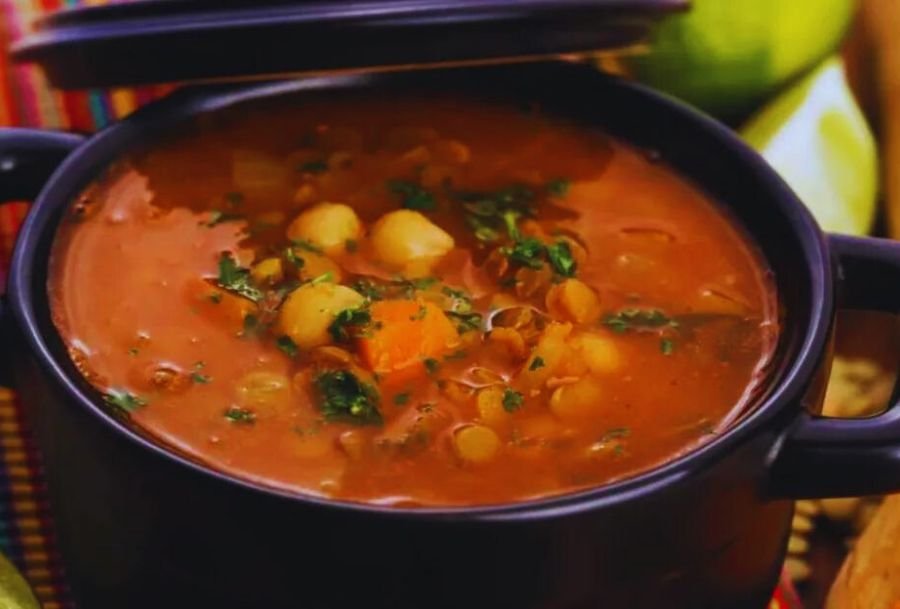
Simmer the soup for an additional 5-10 minutes to allow flavors to meld. Skim off any foam that forms on the surface.
Remove from heat. Serve hot with lemon wedges and additional cilantro for garnish if desired.
Feel free to adjust ingredients based on personal preference. As explained above, there is no correct way to make the soup, but be sure to enjoy it with company!
Nutrition:
| CALORIES: 330kcal | CARBOHYDRATES: 42g | PROTEIN: 16g | FAT: 11g |
| SATURATED FAT: 2g | CHOLESTEROL: 29mg | SODIUM: 1304mg | POTASSIUM: 811mg |
| FIBER: 7g | SUGAR: 7g | VITAMIN A: 1505IU | VITAMIN C: 25.4mg |
| CALCIUM: 52mg | IRON: 3.1mg |
Frequently Asked Questions
-
Can I make Moroccan Harira soup without meat for a vegetarian version?
Absolutely! Harira is versatile, and you can omit the meat to create a delicious vegetarian version. Just adjust the seasoning to your taste.
-
How important is smen (Moroccan fermented butter) in the recipe?
Smen adds a distinctive flavor, but you can skip it or substitute it with regular butter for a slightly different taste.
-
Can I use canned chickpeas for the Harira instead of soaking them overnight?
While soaking chickpeas overnight is traditional, you can use canned chickpeas for a quicker version. Rinse them thoroughly before adding to the soup.
-
Are there alternatives to the traditional spices used in Harira?
Feel free to customize the spice blend based on your preferences. Experiment with cumin, coriander, or other spices to create your unique twist on the classic Harira flavor.
-
How long does it take to cook Harira in a regular pot versus a pressure cooker?
In a regular pot, simmer for about 1 hour until chickpeas are tender. In a pressure cooker, cook on medium pressure for 25 minutes. Adjust the cooking time based on your preferred method.
-
Can I freeze leftover Harira soup?
Yes, Harira freezes well. Allow it to cool completely before transferring to airtight containers. Freeze for up to 3 months, and when ready to enjoy, thaw and reheat on the stove.
-
What’s the significance of Harira in Moroccan culture during Ramadan?
Harira is a symbolic dish often enjoyed during Iftar, marking the end of daily fasting in Ramadan. Its rich and comforting nature makes it a staple, bringing families and communities together.
